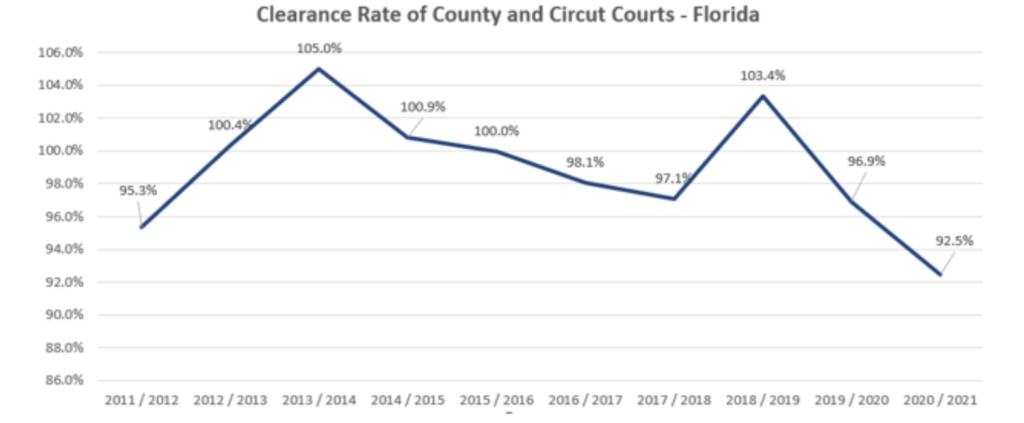Florida Facing an Overcrowded Court System with Clearance Rates at the Lowest in 10 Years
Another key element to ensuring one lives in a society that offers fair and equitable opportunities is outlined in the U.S. Constitution. Amendment Six grants every American the right to a speedy and public trial. While the information on the time it takes for an individual to be granted a trial can be hard to come by and varies significantly based on circumstances, we can analyze clearance rates by circuit court here in Florida.
A clearance rate is a measure of how courts are “keeping up” with incoming caseloads. It divides the number of cases that are disposed by the number of cases filed within a given time period.

Above, the Florida Chamber research team ran an analysis of clearance rates for the state of Florida, factoring in filings and dispositions for all circuit and county courts in Florida. Clearance rates in Florida are at the lowest point in 10 years, with only 92.5 cases cleared for every 100 cases filed. While the clearance rate alone does not paint the entire picture when it comes to one’s right to a “speedy” trial, it does give us a glimpse into the challenges Florida currently faces with an overcrowded court system.
While the clearance rate alone does not paint the entire picture when it comes to one’s right to a “speedy” trial, it does give us a glimpse into the challenges Florida currently faces with an overcrowded court system.
Overcrowded court systems can lead to prolonged stints in jail while waiting for trial, increased legal fees, or can even have a negative impact on representation due to the high caseloads of public defenders.
To support all communities, but especially those communities battling challenges related to poverty, it is imperative that we ensure measures are taken to reduce burdensome traffic in the court system and provide resources that would support those seeking a fair and expeditious trial.